The Miseducation of Cameron Post
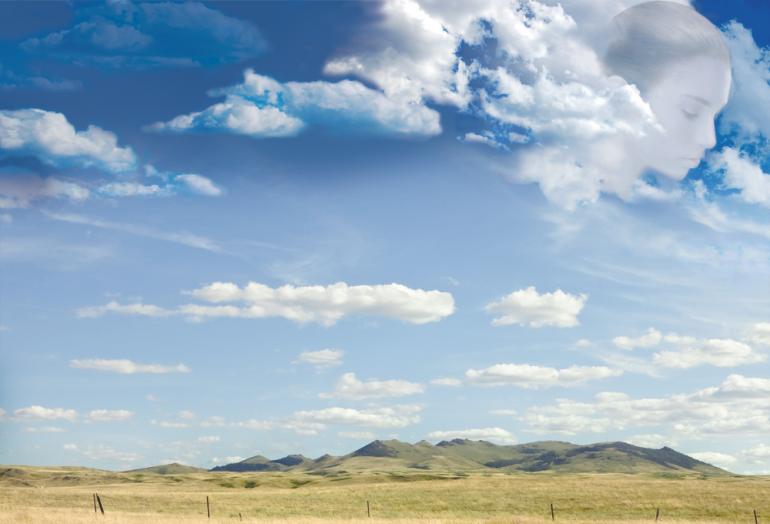
This book is about a girl named Cameron from Miles City who struggles with her sexual
identity. The book opens with her receiving a kiss from her best friend, Irene, after which she learns of the sudden death of her parents near Hebgen Lake. The following scene, which takes place after the funeral, gives a sense of Cameron’s personality. Despite her feelings of guilt, eventually through the love of her friends, she begins to deal with the traumatic events of her life.
This abridged scene takes place shortly after the book opens with the tragic death of 12-year-old Cameron’s parents near Hebgen Lake.
(© 2012 Excerpt published with permission of Balzer+Bray/HarperCollins)
Irene and I hadn’t seen each other much since our robot-hug at my parents’ funeral in June. Mrs. Klauson kept trying to arrange sleepovers and day trips to the mall in Billings, to a rodeo in Glendive, But I would back out at the last minute.
When, in late August, I had finally agreed to go with them to the Custer County Fair, I spent the whole evening wishing that I hadn’t. Irene and I had done up the fair before—we’d done it up big. We’d buy the wristbands that let you ride all the rides you wanted. We’d eat graveyard snow cones—lime, orange, grape, cherry mixed together—and pacos from the Crystal Pistol booth—seasoned beef in a cocoon of hot fry bread, orange grease squirting and burning the insides of our cheeks. We’d wash everything down with lemonade from that stand with the wasps buzzing all around it. Then we’d make fun of the blue-ribbon craft projects and dance a wild jitterbug to whatever lame-o band they’d brought in. In years before, we thought we owned the fair.
But that August we haunted the midway like ghosts—stopping in front of the Tilt-a-Whirl,
then the fishbowl game, watching like we’d already seen everything there was to see but couldn’t quite pull ourselves away. We didn’t talk about my parents, the accident. We didn’t say much of anything at all. Irene bought us tickets for the Ferris wheel, a ride we’d deemed too boring the year before, but it seemed like we should be doing something.
We sat in that metal car, our bare knees just touching. Even when we’d jerk them apart, they’d wind up magnetized again some moments later. We were lifted up into the hot embrace of the ever-blackening Montana sky, the lights from the midway sluicing us in their fluorescent glow, a tinny kind of ragtime music plinking out from somewhere deep in the center of the wheel. Up on top the air smelled less like grease and sugar, more like just-baled hay and the muddy waters of the Yellowstone as it lazed its way around the fairgrounds. Up on top it was quiet, everything squashed down below us, the loudest noise the squeak of the bolts as the wind shifted our car just so. Then we had to float back down into all of it, the whole midway pressed up against us, and I held my breath until we were back on top again.
Our third time up there Irene grabbed my hand. We stayed like that for one full rotation, saying nothing, fingers wound together, and for that forty seconds or so I pretended like things were just as they always were: me and Irene at the fair.
When we got back to the top again, Irene was crying, and she said, “I’m really sorry, Cam.
I’m sorry. I don’t know what else to say.” Irene’s face was bright against the dark of the sky, her eyes all shimmery wet, pieces of her hair blown free from her ponytail. She was beautiful. Everything in me wanted to kiss her, and at the same time it felt like everything in me was sick. I pulled my hand away from hers and looked out over my side of the car, dizzy with nausea.
“We can’t be friends like we were before Irene,” I told her, keeping my eyes fixed on a couple all twined up in the parking lot.
“Why?” she asked.
The ride started up again. Our car jerked and we were lowered a few clicks. We stopped. Now we hovered half in the sky and half in the midway—level with the bright canvas tops of the game booths. I didn’t say anything. I let the music plink. I remembered the feel of her mouth that day in the hayloft, the taste of her gum and the root beer we’d been drinking. The day she dared me to kiss her. And the very next day my parents’ car had veered through the guardrail.
I didn’t say anything. If Irene hadn’t connected those dots herself, then it wasn’t my place to do it for her, to explain that everybody knows how things happen for a reason, and that we had made a reason and bad, bad, unthinkable things had happened.
~Emily Danforth


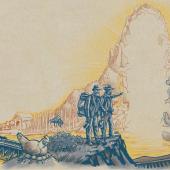
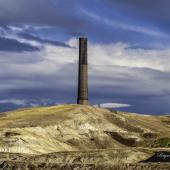
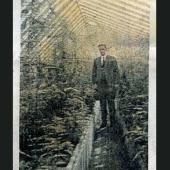
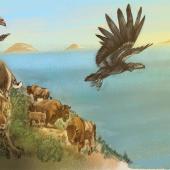
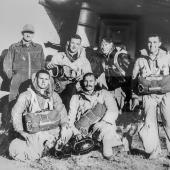

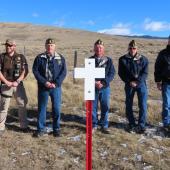

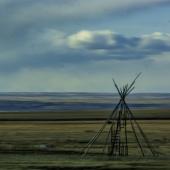
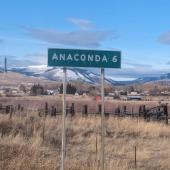
Leave a Comment Here